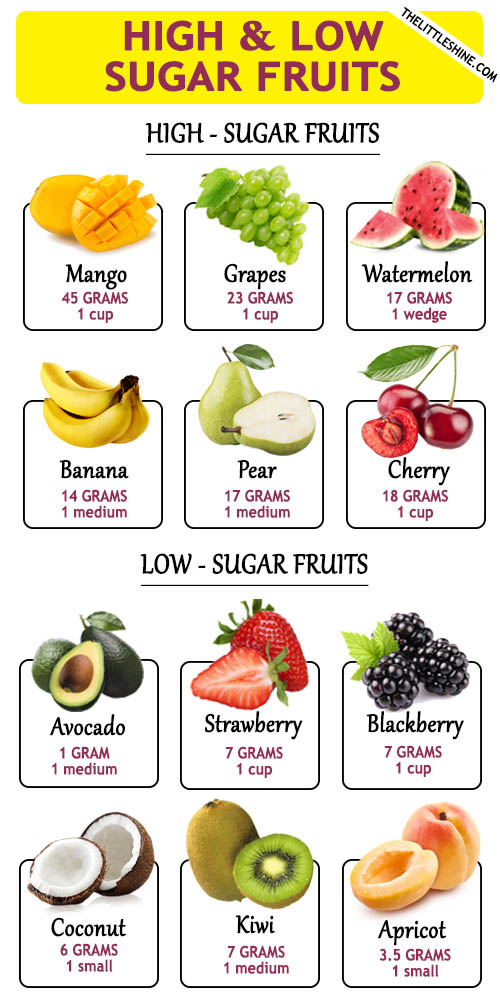Fruits Sugar Levels | Natural Sweeteners Explained

Imagine biting into a plump, juicy apple on a crisp autumn day. That burst of sweetness you taste isn't just your tongue's imagination; it's the natural sugars within the fruit. But with all the talk about sugar's impact on health, you might wonder, do fruits have sugar? And if so, how does it differ from the refined sugar in your morning coffee? Buckle up, because we're diving deep into the world of fruits sugar content, natural sweeteners, and their health impact.
Understanding Fruits Sugar Content
So, let's start with the basics. Yes, fruits have sugar. But here’s the catch: the fruits sugar content is vastly different from the refined sugar you sprinkle into your teas or find in processed foods. Fructose, the primary sugar in fruits, distinguishes itself with its natural, unaltered form. Understanding this distinction is crucial when considering the broader question: are fruits good for you?
Fruits Sugar vs. Refined Sugar
When we compare fruits sugar vs refined sugar, we can see a stark difference. Refined sugar is a processed sweetener that gets extracted and isolated from natural foods like cane or beet. This isolation strips sugar of its nutritional benefits, leaving behind pure, empty calories. On the other hand, fruits sugar is part of the whole food. It comes packaged with fiber, vitamins, and minerals that mitigate its impact on your health and yield a more gradual rise in blood sugar levels. Think of it like a slow-release capsules of energy compared to a sudden, sharp spike caused by refined sugar.
The Health Impact of Fruits Sugar Content
Ah, the million-dollar question: what's the health impact of fruits sugar content? Let's break it down. Fruits, with their natural fibers, digestive enzymes, and complex sugars, offer a different kind of ride than refined sugars. For instance, the fiber in fruits help facilitate digestibility and regulate the absorption of sugar into your bloodstream. This regulated uptake is why fruits are healthier than sugary snacks or beverages. Comparative studies show why fruits are better for most people to snack on than candies or cookies.
Fruit Digestion and Blood Sugar Levels
Ever notice how eating an apple doesn't leave you feeling jittery or crashing down later? That's because fruit digestion is more complex than mere sugar consumption. The fiber content ensures that the fructose in fruits doesn't get absorbed too quickly, helping maintain steady blood sugar levels. This is why many health experts recommend consuming whole fruits instead of fruit juices. Juicing removes the fiber, turning a healthful snack into a sugar rush threat similar to soft drinks.
Diving Deeper: Diabetic Fruits
If you're managing diabetes, you might wonder about diabetic friendly fruits. The key is to choose fruits with a lower glycemic index, which means they affect your blood sugar less dramatically. Berries, cherries, and apples are great choices as they provide the sweetness you crave without spiking your sugar levels too high. Keep in mind that portion control is crucial. Even the best diabetic friendly fruits can become problematic if consumed in large quantities due to their natural sugar.
Sugar, The Main Villain
Looking back at anything that contains excessive sugar can sound like a death sentence to folks. However, swapping out can help. Focus on consuming fruits for a more balanced diet, and always remember, moderation is the key to sustainable health. In fact, incorporating fruits into your diet might even surprise you with their anti-inflammatory properties.
Conclusion: Embrace the Natural Sweetness
Do fruits have sugar? Yes, they do. But that doesn't mean you should avoid them. Understanding that fruits sugar content is fundamentally different from refined sugar is the first step towards a healthier lifestyle. Fruits offer a rich tapestry of nutrients and flavors that support your body's needs without the drawbacks of refined sweeteners. Embrace the natural sweetness of fruits, and see your energy levels, digestion, and overall health improve dramatically. For more tips and tricks on managing your sugar intake, feel free to visit the NHS sugar guidelines and the Harvard School of Public Health . Now, go grab that apple and crunch your way to better health!
FAQs
What are some low-sugar fruits?
Low-sugar fruits include berries like strawberries and raspberries, melons like cantaloupe, and citrus fruits like grapefruits. These fruits offer a sweet taste with a lower glycemic impact compared to fruits like bananas or mangoes.
Can I eat fruits if I have diabetes?
Yes, you can absolutely eat fruits if you have diabetes. Just be mindful of portion sizes and choose fruits with lower glycemic indices, such as berries, cherries, and apples. Always consult with your healthcare provider for personalized advice.
What happens when you eat too much fruit?
If on a daily bases you consume too many fruits, rather this might lead to excess sugar intake, weight gain, and potential digestive issues due to the high fiber content. Moderation is key, so enjoy your fruits as part of a balanced diet.
Why is the fiber in fruits important?
Fiber in fruits helps regulate your digestion by slowing down the release of sugar into your bloodstream. It also aids in maintaining a healthy gut, supports weight management, and can even help reduce cholesterol levels.
Are dried fruits healthier?
Dried fruits can be nutritious, but they're often consumed in larger quantities due to their concentrated form, leading to higher sugar intake compared to fresh fruits. It's best to enjoy dried fruits as an occasional treat while prioritizing fresh fruits in your daily diet.
```
0 Response to "Fruits Sugar Levels | Natural Sweeteners Explained"
Post a Comment